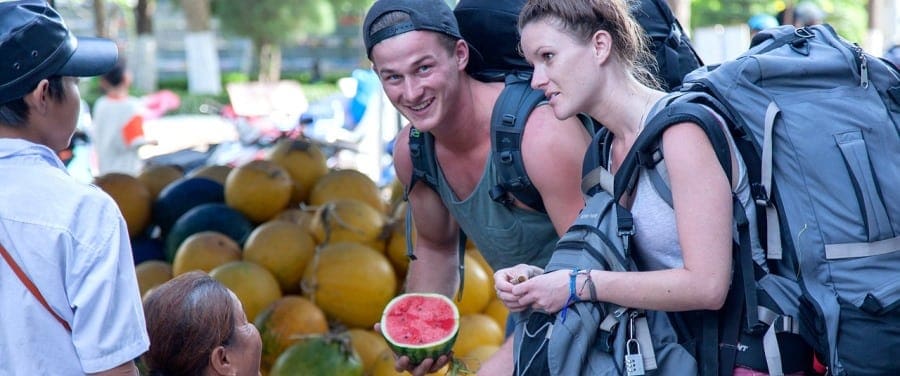The Australian government is set to agree a new 15% so-called ‘backpacker tax’ rate after nearly 18-months or protracted negotiations.
“Today the government will be working to put in place a bill which will propose 15% on the backpackers’ arrangement,” Treasuer Scott Morrison announced on Monday about negotiations which he promised would be finalised “this week”.
“We will honour the arrangement that we’ve come to with Senator Xenophon and we appreciate his continued support on this, as well as Senator Hinch.”
Some 600,000 backpackers come to Australia each year, including around 45,000 UK travellers on working holiday visas.
Many of them fund their travels Down Under by partaking in seasonal work such as picking fruit. Indeed the Australian agricultural industry relies on such labourers to harvest their crops.
Currently, backpackers only start paying tax on their earnings when their yearly income exceeds AUD$18,200, just like regular Australian workers. The new proposed tax measure means that they would begin paying tax on the very first dollar earned.
The Coalition government initially proposed a 32.5% tax from the first dollar. The move was met with significant opposition though from farmers who said that the high tax rate would be a disincentive for the foreign workers on which they rely so heavily, as well as from the tourism industry who argued it would act as a major disincentive for backpackers to come to Australia at all.
Until the weekend, the government had been pushing for a lower 19% rate, but was still met with resistance in parliament.
Lowering the proposed rate from the original 32.5% to the newly proposed 15% will reduce government revenues by around $120 million over four years, according to the treasurer.
Senator Nick Xenophon said he was pleased with the new proposed rate because negotiations included support for his own proposal for Australian residents on Youth Allowance and New Start allowances to earn up to $5,000 without a penalty, encouraging locals to take up the seasonal job opportunities favoured by backpackers.
“It is a big breakthrough and removes the disincentive for people on unemployment benefits to do that seasonal work where there are genuine labour shortages,” he said.
TOP IMAGE: File photo (Miotran)











